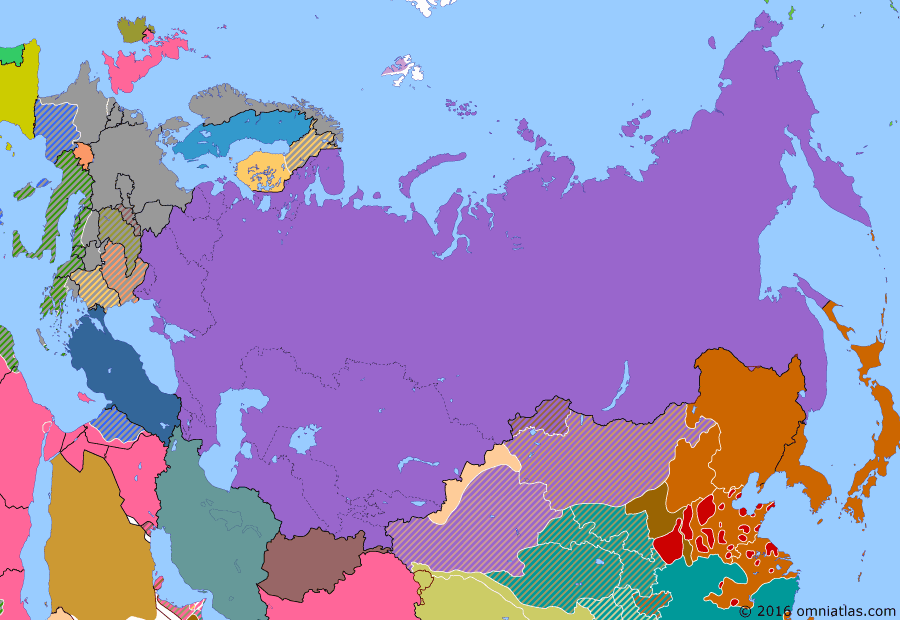Northern Eurasia 1941: Eve of Barbarossa
21 June 1941
21 Jun 1941
Soviet Union under Stalin
1816–1914 Late Tsarist Russia
1914–1918 Great War and the Revolution
1918–1921 Russian Civil War: The White Phase
1921–1927 Russian Civil War: The Green Phase
1927–1941 Soviet Union under Stalin
1941–1943 Great Patriotic War: Germany Invades
1943–1945 Great Patriotic War: Germany at Bay
1945–1991 Soviet Superpower
1991–pres Successors of the Soviet Union
Eve of Barbarossa
Following their treatment by the Soviets, Finland and Romania fell into alignment with the Germans. By June 1941, after overrunning the Balkans, Germany was dominant in continental Europe and massing its forces on the Soviet border.
